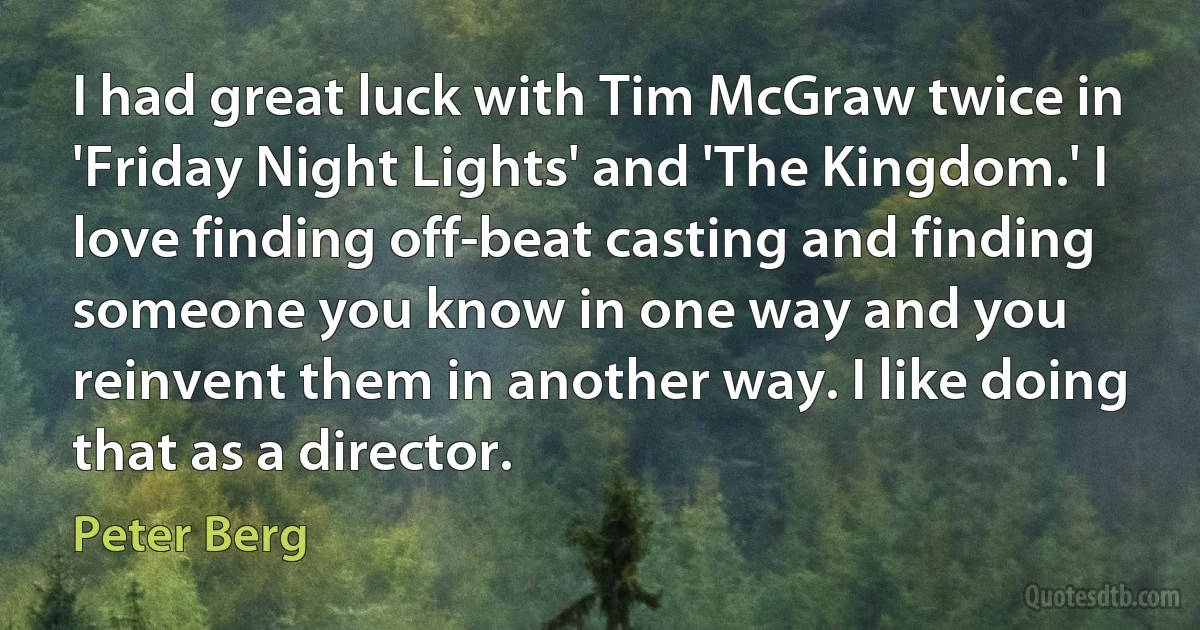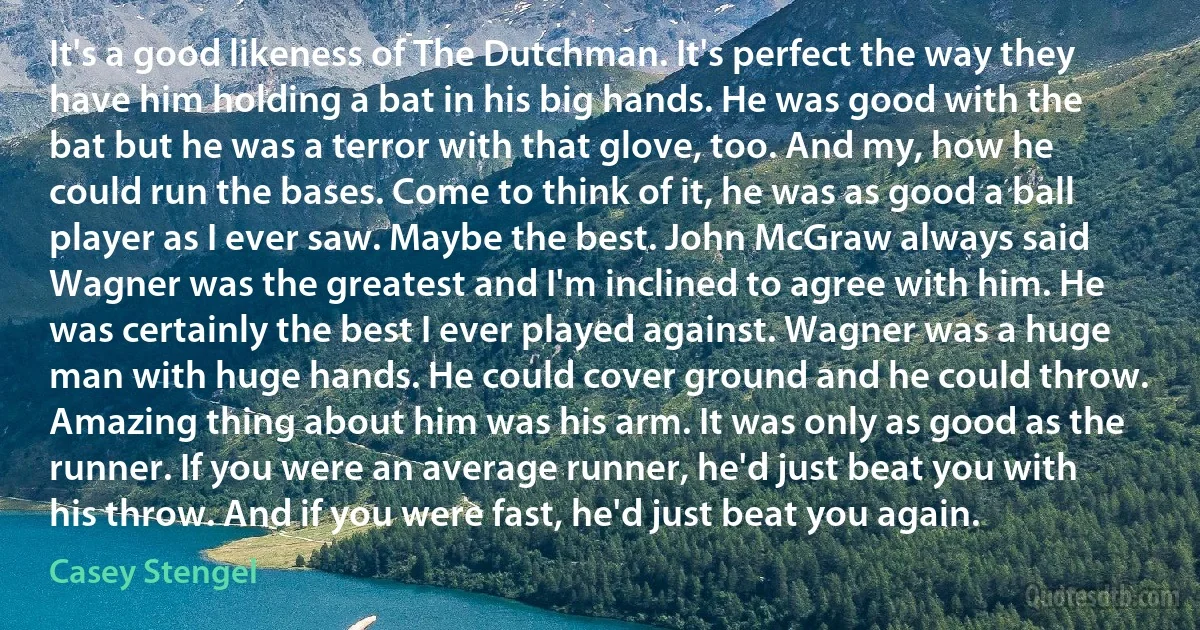Mcgraw Quotes
But when you think: Tim McGraw,
I hope you think my favorite song.
The one we danced to all night long:
The moon like a spotlight on the lake.
When you think happiness,
I hope you think: "That little black dress."
Think of my head on your chest,
An' my old faded blue jeans.
When you think Tim McGraw,
I hope you think of me.

Taylor Swift
McGraw was an improviser, a teacher. He brought much to the game that keeps baseball fresh and suspenseful today-the hit-and-run play, the steal, the squeeze play, the uses of the bunt and the defenses against it. He helped turn the game into a thing of fluid beauty, infielders charging the plate or roaming far from their bases, outfielders moving with each pitch, racing in for base hits before them, backing each other in the outfield, entering the infield itself on rundown plays. Yet when the game changed radically, with the introduction of the livelier baseball, McGraw naturally shifted to a power emphasis, founding his team about such men as George Kelly, Bill Terry, Mel Ott. He knew, too, that the old pitching style of permitting a man to hit a deadened ball because it would then be caught in the big fields had to be changed, and his staffs led the league year after year in strikeouts, in earned-runs.

Arnold Hano
He wanted to win so badly it killed him. But before it killed him, it elevated the game of baseball, at the Polo Grounds, to a grim spectacle of play-war. The analogy fits McGraw. He reminds you more of a battlefield general than he does a sportsman, and if he reminds you of a general, it would be a man who combined the fury of a Patton and the spectacular, yet knowledgeable, flair of MacArthur. Perhaps this desire to win occasionally overflowed its normal limits and became an obsession; perhaps the grimness darkened the sport at times. This was his weakness, for McGraw was not infallible; McGraw was not perfect. Perfection is lifeless, mechanical, uncaring. McGraw was never uncaring. If he was anything, he was a man who cared.

Arnold Hano
When I was a teenager, my biggest lessons came from Kenny Chesney, Tim McGraw, George Strait, Rascal Flatts and Brad Paisley. I learned so much from opening up for those artists, and it also taught me how to treat your opening acts and make them feel like they're part of a family, not just a tour.

Taylor Swift
McGraw was an improviser, a teacher. He brought much to the game that keeps baseball fresh and suspenseful today-the hit-and-run play, the steal, the squeeze play, the uses of the bunt and the defenses against it. He helped turn the game into a thing of fluid beauty, infielders charging the plate or roaming far from their bases, outfielders moving with each pitch, racing in for base hits before them, backing each other in the outfield, entering the infield itself on rundown plays. Yet when the game changed radically, with the introduction of the livelier baseball, McGraw naturally shifted to a power emphasis, founding his team about such men as George Kelly, Bill Terry, Mel Ott. He knew, too, that the old pitching style of permitting a man to hit a deadened ball because it would then be caught in the big fields had to be changed, and his staffs led the league year after year in strikeouts, in earned-runs.

John McGraw


